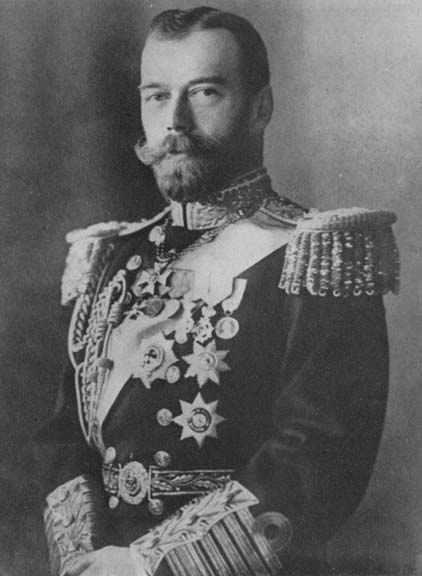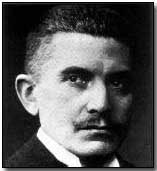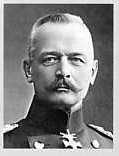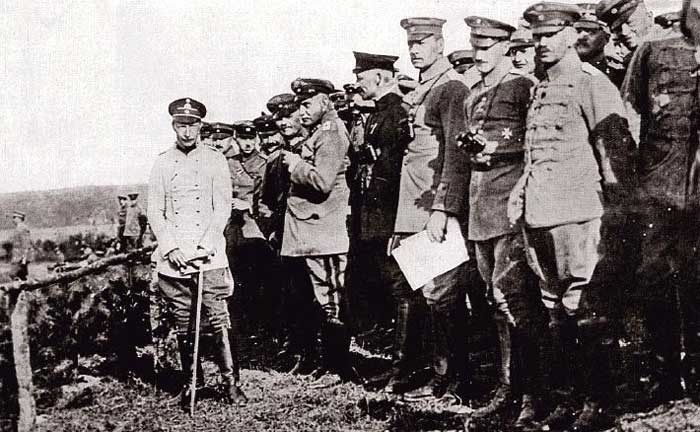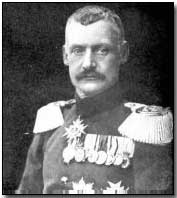First World War Alt-Hist: Operation Heinrich.
Posted: 2007-05-29 03:23pm
OPERATION HEINRICH: PROLOGUE
A collaborative work by Marina O'Leary and Christopher Purnell
THE FOREIGN OFFICE
UNITED KINGDOM, LONDON
17 AUGUST 1914
Prince Karl Max von Lichnowsky, the German Ambassador accredited to the United Kingdom, appeared in a great hurry to see Sir Edward Grey, the British Foreign Secretary. He scarcely noticed the fine Italianate design of the Foreign Office building; he was to used to it, and to pressed, to admire it, though his nose did remind him of the gentle smell of fine tobacco smoke which hung in the lobby where he waited with but a single aide. At the moment he was in to much of a hurry to even think of smoking, which he somewhat regretted, but this success was more than enough to compensate for his current urgency in delivering it to the British government.
It had been a major diplomatic effort on the part of certain factions in the German government to produce this note, which would itself be a great diplomatic achievement. It was, of course, not of much meaning. Karl Max knew that there were many factions in the German military who still thought that violating the terms of this agreement would be perfectly sensible. But that wasn't the point; the point was that it bought Germany time and manoeuvring room, and time and manoeuvring room was what Germany needed. Great armies were clashing in both the east and the west, and the fate of the Empire hung in the balance.
It was not a personal assurance from the Kaiser, of course. He would never let himself get manoeuvred into risking his word of honour on a matter like this which his diplomats could change under his feet. But it came from the government, and in parliamentary-minded Britain, that would be enough. Worse, the whole thing had been delayed by the weekend and it had only now gotten out; the delay had simply taken to long as it was, with three weeks in which Britain tottered as events in the continent developed uncertainly, and nobody in Germany was prepared to say the necessary words to secure the peace until only now. But there had been a reason for the delay, and it was something that even Von Lichnowsky was somewhat annoyed with.
In one of their previous meetings—on the 6th—Sir Edward had modestly noted that the Royal Navy would be forced to intervene to protect the safety of British neutrality and British shipping if the High Seas Fleet tried to force its way through the English Channel against the French.
That was, of course, an ultimatum of what would be required to make the United Kingdom go to war, and naturally it had thrown the entire process—which had nearly reached the wording of a note as it stood—back to square one, and it had taken from there another ten days to get the German government to agree sufficiently (and, it was rumoured, several exchanges of private letters between Kaiser Wilhelm and King George) to guarantee that German naval units would not operate in the Channel under any circumstance. But at last it had been done; first thing Monday morning the message had been sent out, and immediately Karl Max had moved to make sure that it got into the right hands to end the crisis decisively before it got worse.
At last—and it had only been a few minutes—a liveried attendant came down and bowed formally. “Your Highness. Your party is welcome to meet with His Excellency the Foreign Secretary now. Please follow me.”
“Of course,” Prince von Lichnowsky answered negligently, and followed at once in the wake of the attendant, his aide following him in turn as they navigated through the fine building on a journey with which the Prince was not unfamiliar, but which seemed to be taken with more haste than usual, though the attendant surely kept the same pace as always.
They arrived, and the attendant introduced the Prince: “Your Excellency, His Highness Prince Karl Max von Lichnowsky, the Ambassador of His Majesty Kaiser Wilhelm II.” At that, he bowed and retired.
Prince von Lichnowsky stepped into Sir Edward's office to find the British Foreign Secretary standing. He cut a dashing figure of middle age; very thoughtful eyes, slightly receding hair, a generally modest and healthy figure in his black formal suit. Karl Max admired him greatly, and though he regretted that this message was more hollow than it might seem, yet perhaps it could hold.
“Your Highness,” Sir Edward greeted the German Ambassador cordially, as he always would, no matter his private feelings on the matter of the current war—he viewed the danger of the defeat of France quite acutely. “Please, do have a seat, do have a seat.”
“Thank you, Your Excellency,” Karl Max replied as he sat, and took the diplomatic pouch from his aide, opening it quickly. “I have most excellent news for the British government, which has only just arrived from Berlin.”
Sir Edward looked most interested indeed. He had to, perhaps, even guess what the contents were, but he waited, nonetheless, while the Prince tugged them the copy of the telegraph out of his diplomatic pouch—the original receiver's copy, complete with typos and blotted out words that had been hastily corrected, for Prince von Lichnowsky had proceeded in such haste that he had not spared the time to have it formally composed. It was offered over to Sir Edward without a moment's hesitation, and as he took it up, Karl Max summarized the contents:
“Your Excellency, I am most pleased to report that the German government has agreed to provide an assurance of the territorial integrity of the Kingdom of Belgian. The agreement is binding in all situations save a French violation of Belgian neutrality—and in that case, only a direct request from the King of Belgium for our aide would suffice to render it inoperative. This is endorsed by every level of the German government.”
“And Luxembourg?” Sir Edward asked quietly.
“We will evacuate our troops from Luxembourg on the conclusion of the war and the Sovereign and people of that nation will be free to choose their own destiny. That is the solemn promise of the German government.”
“Then there is a final matter at hand, and that is the most urgent. I trust that the German government in whole fully understands the British position on the importance of the Channel, and how it must be kept free of the dehabilitating effects of a general European war for the sake of British national interests?”
Karl Max here replied in a cool, though still very polite way. “The Government received that note with all its due gravity, and has agreed, after the discussion necessary in a matter of such gravity, to abide entirely by the proposition that Britain intends to secure the neutrality and peace of the waters of the English Channel, and that the German government is hereby fully willing to assure, as outlined in the note, that under no circumstance as part of the hostilities against France or Russia shall German warships enter the English Channel.”
“Very well, then,” Sir Edward replied, showing the usual British stoicism in the face of what appeared to be the certain end of any chance of British involvement in the conflict, for good or ill.
“There are those who will not consider these promises enough,” Sir Edward continued after a moment's quiet reflection. “But they are in the minority, and I must say that in my own view this document is sufficient to insure that no great tragedy shall befall the relations of the Anglo-Saxon and Teutonic peoples.” His own personal view on the matter, of course, was now irrelevant.
“May God see to it!” Prince von Lichnowsky agreed in a far more fervent relief.
Sir Edward knew on his part that war was now impossible, even though it seemed dangerous for France to be left to fight alone. In the past two weeks the issue in Ireland had been growing steadily more threatening, however, and Home Rule was the phrase on everyone's lips, even as the Continent was watched uneasily. Now that the uneasy watching would not transform into anything more was all but guaranteed.
BOSSAU, OST PREUSSEN
18 AUGUST 1914
Moltke the Younger stood silently, as the pins on the map in front of him were adjusted to represent news of the success of General von Francois' operations with I Corps of 8th Army the day before. It had been very bad news that the action had happened at all, because it meant a most serious concentration of Russian troops in the area of Gumbinnen was advancing, contrary to the expectations of the plan. The Russians should not have mobilized yet! But it was to late to halt Operation Heinrich.
On the positive side, the encounter had gone very well for the German Army. I Corps had engaged the Russians around Stalluponen and sliced through a dispersed corps-sized formation of the Russian Army there. More than three thousand prisoners had been taken and Von Francois, commanding the vanguard corps of 8th army, was now pressing into the heart of a Russian formation believed to be a major army under the commander of their General Rennenkampf; the Russians, in a display of shocking disregard for operational security, had been broadcasting orders in the clear.
More data was pouring in, of course, but the first and most obvious thing was that Francois had dispersed a whole Russian corps and in doing so had torn a gap into the flank of the Russian formation—possibly destroying it entirely. General von Prittwitz was reluctantly following up on this, and Moltke had just dispatched an order demanding that he press home the attack more aggressively. He didn't trust Prittwitz, and it was clear that Francois' action had opened up a very considerable advantage for the German Army, which might soon need it.
That said, it was only 8th army that was currently engaged. 9th Army—the forces from Northern Germany which had been made available since the High Seas Fleet could easily prevent landings by both France and Russia—was yet unengaged on the extreme left of the German advance to the north of Gumbinnen in the area above Schillehnnen. Unfortunately it seemed like the weakest flank of the Army was the one engaged with very considerable Russian forces. In the centre the most tenuous part of the advance—third and fourth armies under Hausen and Albrecht—staging out of Lotzen in the Mausurian lakes was swinging into Russia without having engaged any sort of enemy at all.
On the right flank the situation was different to still another degree. The advance proceeding south from Eylau had not yet engaged in action, but it was clear from radio transmissions and from the reports of cavalry that there was a force massing in front of it. The extreme right flank held the strong 1st Army under Von Kluck, necessary to deal with the breakout of the Warsaw Military District forces which was expected. But here, again, Von Kluck was not yet engaged; on the other hand, 7th Army under Heeringen had cavalry scouts ahead which had reported the mustering of possibly another army-sized force, still in Russian territory around Ostrolenka.
This was not so much of a problem as the offensive of the Russian forces in the north-east posed. That the Russians would defend here was expected, though it was thought that they would be concentrated further west, toward Mlawa. This meant that the weaker of the two armies of the right flank would be engaged against this Russian force: Actively planning for anything more than the engagement at the moment was impossible, for it was impossible to say what sort of forces were opposed to Von Kluck's powerful First Army.
“General, Sir.”
Moltke looked to his chief of staff. “Go ahead.”
“We have a new report in from 8th Army. Von Prittwitz has acknowledged your orders and as a consequence is committing the 3rd Reserve Division under Von Morgen to support I Corps. He also reports that he has solid information that yesterday Von Francois destroyed a Russian division and has consequently now split in two the right-flank corps of the the Russian army facing him. He asks for further instructions in this light.”
“General von Prittwitz shall obey my latest orders with the utmost vigor; these facts do not change their relevance,” Motlke replied after a moment. It was really quite true, after all, and it would not do to get to overconfident; though--if 9th Army continued to remain unengaged, this suggested some interesting possibilities with what appeared to be the flank of the Russian army in the Gumbinnen region having already collapsed after a day of fighting. Very interesting possibilities indeed, particularly since the centre of the German advance was as of yet entirely unengaged, though Moltke did not believe it possible that, with a Russian army apparently facing each of his flanks, that they should not have some sort of covering force in the centre; it must be deeper into Russian territory, and so he prepared another dispatching instructing particular caution on the part of Hausen and Albrecht. It would be a long evening.
A collaborative work by Marina O'Leary and Christopher Purnell
THE FOREIGN OFFICE
UNITED KINGDOM, LONDON
17 AUGUST 1914
Prince Karl Max von Lichnowsky, the German Ambassador accredited to the United Kingdom, appeared in a great hurry to see Sir Edward Grey, the British Foreign Secretary. He scarcely noticed the fine Italianate design of the Foreign Office building; he was to used to it, and to pressed, to admire it, though his nose did remind him of the gentle smell of fine tobacco smoke which hung in the lobby where he waited with but a single aide. At the moment he was in to much of a hurry to even think of smoking, which he somewhat regretted, but this success was more than enough to compensate for his current urgency in delivering it to the British government.
It had been a major diplomatic effort on the part of certain factions in the German government to produce this note, which would itself be a great diplomatic achievement. It was, of course, not of much meaning. Karl Max knew that there were many factions in the German military who still thought that violating the terms of this agreement would be perfectly sensible. But that wasn't the point; the point was that it bought Germany time and manoeuvring room, and time and manoeuvring room was what Germany needed. Great armies were clashing in both the east and the west, and the fate of the Empire hung in the balance.
It was not a personal assurance from the Kaiser, of course. He would never let himself get manoeuvred into risking his word of honour on a matter like this which his diplomats could change under his feet. But it came from the government, and in parliamentary-minded Britain, that would be enough. Worse, the whole thing had been delayed by the weekend and it had only now gotten out; the delay had simply taken to long as it was, with three weeks in which Britain tottered as events in the continent developed uncertainly, and nobody in Germany was prepared to say the necessary words to secure the peace until only now. But there had been a reason for the delay, and it was something that even Von Lichnowsky was somewhat annoyed with.
In one of their previous meetings—on the 6th—Sir Edward had modestly noted that the Royal Navy would be forced to intervene to protect the safety of British neutrality and British shipping if the High Seas Fleet tried to force its way through the English Channel against the French.
That was, of course, an ultimatum of what would be required to make the United Kingdom go to war, and naturally it had thrown the entire process—which had nearly reached the wording of a note as it stood—back to square one, and it had taken from there another ten days to get the German government to agree sufficiently (and, it was rumoured, several exchanges of private letters between Kaiser Wilhelm and King George) to guarantee that German naval units would not operate in the Channel under any circumstance. But at last it had been done; first thing Monday morning the message had been sent out, and immediately Karl Max had moved to make sure that it got into the right hands to end the crisis decisively before it got worse.
At last—and it had only been a few minutes—a liveried attendant came down and bowed formally. “Your Highness. Your party is welcome to meet with His Excellency the Foreign Secretary now. Please follow me.”
“Of course,” Prince von Lichnowsky answered negligently, and followed at once in the wake of the attendant, his aide following him in turn as they navigated through the fine building on a journey with which the Prince was not unfamiliar, but which seemed to be taken with more haste than usual, though the attendant surely kept the same pace as always.
They arrived, and the attendant introduced the Prince: “Your Excellency, His Highness Prince Karl Max von Lichnowsky, the Ambassador of His Majesty Kaiser Wilhelm II.” At that, he bowed and retired.
Prince von Lichnowsky stepped into Sir Edward's office to find the British Foreign Secretary standing. He cut a dashing figure of middle age; very thoughtful eyes, slightly receding hair, a generally modest and healthy figure in his black formal suit. Karl Max admired him greatly, and though he regretted that this message was more hollow than it might seem, yet perhaps it could hold.
“Your Highness,” Sir Edward greeted the German Ambassador cordially, as he always would, no matter his private feelings on the matter of the current war—he viewed the danger of the defeat of France quite acutely. “Please, do have a seat, do have a seat.”
“Thank you, Your Excellency,” Karl Max replied as he sat, and took the diplomatic pouch from his aide, opening it quickly. “I have most excellent news for the British government, which has only just arrived from Berlin.”
Sir Edward looked most interested indeed. He had to, perhaps, even guess what the contents were, but he waited, nonetheless, while the Prince tugged them the copy of the telegraph out of his diplomatic pouch—the original receiver's copy, complete with typos and blotted out words that had been hastily corrected, for Prince von Lichnowsky had proceeded in such haste that he had not spared the time to have it formally composed. It was offered over to Sir Edward without a moment's hesitation, and as he took it up, Karl Max summarized the contents:
“Your Excellency, I am most pleased to report that the German government has agreed to provide an assurance of the territorial integrity of the Kingdom of Belgian. The agreement is binding in all situations save a French violation of Belgian neutrality—and in that case, only a direct request from the King of Belgium for our aide would suffice to render it inoperative. This is endorsed by every level of the German government.”
“And Luxembourg?” Sir Edward asked quietly.
“We will evacuate our troops from Luxembourg on the conclusion of the war and the Sovereign and people of that nation will be free to choose their own destiny. That is the solemn promise of the German government.”
“Then there is a final matter at hand, and that is the most urgent. I trust that the German government in whole fully understands the British position on the importance of the Channel, and how it must be kept free of the dehabilitating effects of a general European war for the sake of British national interests?”
Karl Max here replied in a cool, though still very polite way. “The Government received that note with all its due gravity, and has agreed, after the discussion necessary in a matter of such gravity, to abide entirely by the proposition that Britain intends to secure the neutrality and peace of the waters of the English Channel, and that the German government is hereby fully willing to assure, as outlined in the note, that under no circumstance as part of the hostilities against France or Russia shall German warships enter the English Channel.”
“Very well, then,” Sir Edward replied, showing the usual British stoicism in the face of what appeared to be the certain end of any chance of British involvement in the conflict, for good or ill.
“There are those who will not consider these promises enough,” Sir Edward continued after a moment's quiet reflection. “But they are in the minority, and I must say that in my own view this document is sufficient to insure that no great tragedy shall befall the relations of the Anglo-Saxon and Teutonic peoples.” His own personal view on the matter, of course, was now irrelevant.
“May God see to it!” Prince von Lichnowsky agreed in a far more fervent relief.
Sir Edward knew on his part that war was now impossible, even though it seemed dangerous for France to be left to fight alone. In the past two weeks the issue in Ireland had been growing steadily more threatening, however, and Home Rule was the phrase on everyone's lips, even as the Continent was watched uneasily. Now that the uneasy watching would not transform into anything more was all but guaranteed.
BOSSAU, OST PREUSSEN
18 AUGUST 1914
Moltke the Younger stood silently, as the pins on the map in front of him were adjusted to represent news of the success of General von Francois' operations with I Corps of 8th Army the day before. It had been very bad news that the action had happened at all, because it meant a most serious concentration of Russian troops in the area of Gumbinnen was advancing, contrary to the expectations of the plan. The Russians should not have mobilized yet! But it was to late to halt Operation Heinrich.
On the positive side, the encounter had gone very well for the German Army. I Corps had engaged the Russians around Stalluponen and sliced through a dispersed corps-sized formation of the Russian Army there. More than three thousand prisoners had been taken and Von Francois, commanding the vanguard corps of 8th army, was now pressing into the heart of a Russian formation believed to be a major army under the commander of their General Rennenkampf; the Russians, in a display of shocking disregard for operational security, had been broadcasting orders in the clear.
More data was pouring in, of course, but the first and most obvious thing was that Francois had dispersed a whole Russian corps and in doing so had torn a gap into the flank of the Russian formation—possibly destroying it entirely. General von Prittwitz was reluctantly following up on this, and Moltke had just dispatched an order demanding that he press home the attack more aggressively. He didn't trust Prittwitz, and it was clear that Francois' action had opened up a very considerable advantage for the German Army, which might soon need it.
That said, it was only 8th army that was currently engaged. 9th Army—the forces from Northern Germany which had been made available since the High Seas Fleet could easily prevent landings by both France and Russia—was yet unengaged on the extreme left of the German advance to the north of Gumbinnen in the area above Schillehnnen. Unfortunately it seemed like the weakest flank of the Army was the one engaged with very considerable Russian forces. In the centre the most tenuous part of the advance—third and fourth armies under Hausen and Albrecht—staging out of Lotzen in the Mausurian lakes was swinging into Russia without having engaged any sort of enemy at all.
On the right flank the situation was different to still another degree. The advance proceeding south from Eylau had not yet engaged in action, but it was clear from radio transmissions and from the reports of cavalry that there was a force massing in front of it. The extreme right flank held the strong 1st Army under Von Kluck, necessary to deal with the breakout of the Warsaw Military District forces which was expected. But here, again, Von Kluck was not yet engaged; on the other hand, 7th Army under Heeringen had cavalry scouts ahead which had reported the mustering of possibly another army-sized force, still in Russian territory around Ostrolenka.
This was not so much of a problem as the offensive of the Russian forces in the north-east posed. That the Russians would defend here was expected, though it was thought that they would be concentrated further west, toward Mlawa. This meant that the weaker of the two armies of the right flank would be engaged against this Russian force: Actively planning for anything more than the engagement at the moment was impossible, for it was impossible to say what sort of forces were opposed to Von Kluck's powerful First Army.
“General, Sir.”
Moltke looked to his chief of staff. “Go ahead.”
“We have a new report in from 8th Army. Von Prittwitz has acknowledged your orders and as a consequence is committing the 3rd Reserve Division under Von Morgen to support I Corps. He also reports that he has solid information that yesterday Von Francois destroyed a Russian division and has consequently now split in two the right-flank corps of the the Russian army facing him. He asks for further instructions in this light.”
“General von Prittwitz shall obey my latest orders with the utmost vigor; these facts do not change their relevance,” Motlke replied after a moment. It was really quite true, after all, and it would not do to get to overconfident; though--if 9th Army continued to remain unengaged, this suggested some interesting possibilities with what appeared to be the flank of the Russian army in the Gumbinnen region having already collapsed after a day of fighting. Very interesting possibilities indeed, particularly since the centre of the German advance was as of yet entirely unengaged, though Moltke did not believe it possible that, with a Russian army apparently facing each of his flanks, that they should not have some sort of covering force in the centre; it must be deeper into Russian territory, and so he prepared another dispatching instructing particular caution on the part of Hausen and Albrecht. It would be a long evening.


